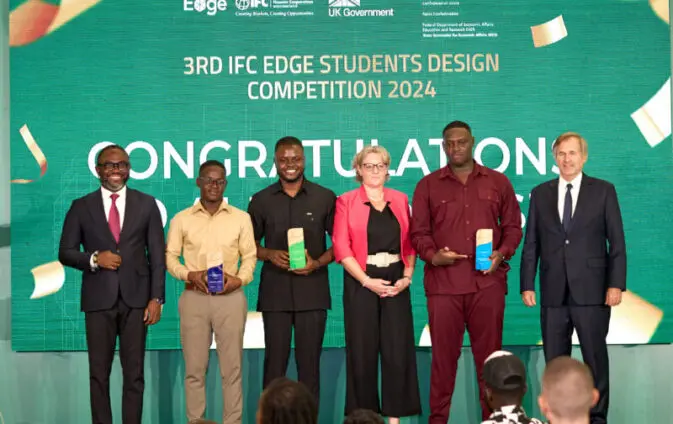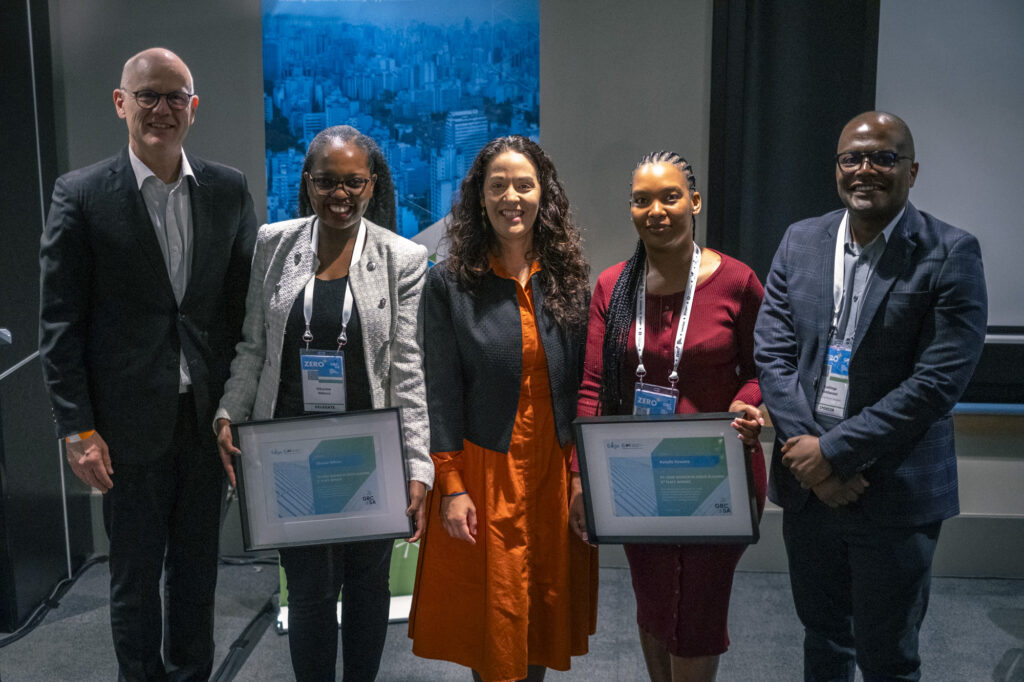Stories
Building a Sustainable Future: Celebrating Student Innovation and Empowering Women in Africa
The next generation of green building professionals, from young design students in Ghana to innovative women professionals in South Africa, are leading the way on the path to net zero for the African continent.
The International Finance Corporation (IFC), a member of the World Bank Group, recently celebrated the achievements of talented individuals and organizations working towards a more sustainable future in Africa. Through two significant competitions, IFC EDGE has recognized and rewarded innovation, leadership, and commitment to sustainable building practices. The next generation of green building professionals, from young design students in Ghana to innovative women professionals in South Africa, are leading the way on the path to net zero for the African continent.
Ghana’s Next Generation of Green Design Professionals
In Ghana, the third annual EDGE Student Design Competition concluded with a focus on promoting affordability and efficiency through passive design. The competition, which attracted 90 participants, challenged students to design affordable, three-bedroom homes that prioritize sustainability, resource efficiency, and aesthetic appeal.
A Commitment to Sustainable Design
The competition was supported by EDGE’s partnership with the Swiss State Secretariat for Economic Affairs (SECO), and underscores IFC’s ongoing commitment to fostering sustainable development in emerging markets. By providing a platform for young architects to showcase their skills, IFC empowers the next generation to shape a greener future for Ghana.
Celebrating the Winners

First Place Winner: Joel Jojo Osam Mensah, from Central University, impressed the judges with his innovative design, which incorporated passive design strategies and low-maintenance landscaping to create a comfortable and sustainable living space. See his design here.
Second Place Winner: Dinko Abdul-Nasir Mor-Tumah, also from Central University, demonstrated a strong understanding of sustainable design principles in his project. See his design here.
Third Place Winner: Emmanuel Amadu, from Kumasi Technical University, showcased creativity and technical expertise in his design. See his design here.
A Greener Future for Ghana
The building sector is a significant contributor to climate change, generating nearly 40% of global greenhouse gas emissions annually. However, by embracing sustainable design practices, we can reduce our carbon footprint and create healthier, more resilient communities. IFC’s EDGE program plays a crucial role in mainstreaming green building practices by providing the tools and resources needed to design and certify resource-efficient buildings.
By recognizing and rewarding young talent, the EDGE Student Design Competition inspires the next generation of architects to prioritize sustainability in their work. This commitment to fostering a culture of innovation and environmental responsibility will help shape a greener future for Ghana and beyond.
Empowering Women in South Africa’s Green Building Movement

Meanwhile, in South Africa, the IFC Women in Green Building Competition honored three outstanding women who are driving the country’s green building movement. The competition, which was also generously supported by SECO and conducted in partnership with the Green Building Council of South Africa, is now in its third year recognizing female professionals for their contributions to sustainable construction and their roles as EDGE Experts.
Here’s a closer look at the 2024 winners:
First Place Winner: Sibusiso Ndlovu. A chartered accountant and business development manager, Ndlovu brings her expertise in structured property finance to promote the integration of green practices within the property sector.
Second Place Winner: Theuna Stoltz. This architect oversees projects at GASS Architecture Studios, including the regenerative campus Green School South Africa, which is poised to be Africa’s first Living Building Compliant structure. Stoltz champions environmentally conscious design that minimizes ecological impact and fosters a connection with nature.
Third Place Winner: Avuyile Kewana. Working as an Assistant Professional Officer for the City of Cape Town, Kewana focuses on climate change solutions through net-zero carbon strategies for both existing and new buildings. She emphasizes the crucial role of collaboration between government, private organizations, and communities to achieve a sustainable future.
The Power of EDGE Certification and Education
Both competitions align with IFC’s broader mission to promote sustainable development and a greener, more resilient built environment as a key tool in the fight against climate change. EDGE certification, which helps developers, owners, and larger project teams design and certify resource-efficient buildings, is an important part of this mission. EDGE makes it easier to design and certify resource efficient and Zero Carbon buildings of all types, in any location.
To further support the green building movement, IFC offers the “Designing for Greater Efficiency” course, which equips professionals with the knowledge and skills to design and build sustainable buildings. This course is particularly valuable for students and young professionals who are eager to make a positive impact on the environment.
By investing in education, training, and recognition programs, IFC empowers individuals and organizations to adopt green building practices and reduce their carbon footprint. As Africa continues to prioritize decarbonization and sustainable development, these competitions and initiatives highlight the region’s potential to become a global leader in green building. By celebrating the achievements of talented individuals and organizations, IFC inspires future generations to build a greener, more sustainable future.

